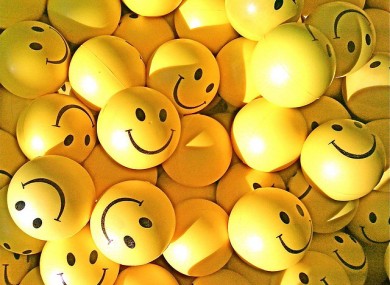“Are your prayers different? Now that you’ve been healed,” my partner asked me one morning.
“What?” I really didn’t know what he was talking about.
He explained: “I mean, you were depressed. But since our daughter’s birth, you haven’t been. No meds. No sadness. It’s a miracle!”
In a way, he was right. The sadness, weariness and desolation of my nine plus months of pregnancy seemed to evaporate the moment our daughter was born. I was … happy. And I stayed happy. I was sustainably happy.
At first, it was the relief of having “that baby out.” So said my discomfort from nine months of pregnancy during a hot summer.
Then I assumed it was the impact of having enough oxygen in my red blood cells. The anemia of pregnancy exhausted me, but my hematologist said there were no ideal solutions – given that my blood cells simply don’t absorb iron from food like the cells of most people. I hacked my way wearily through the anemia and its accompanying depressive symptoms. I had arranged for an iron infusion to begin the night I gave birth. By the time I left the hospital, I had sufficient iron in my blood and a baby girl in my arms.
My therapist and well-meaning friends verbally tip-toed their ways into asking if I was depressed. They whispered of “postpartum” and “the effects of insufficient erratic sleep.”
I said it to them the way I felt it: “I’m not depressed. The baby brings me a lot of joy.”
From the moment my daughter emerged from my swollen belly, I no longer felt depression. As I went through check-up after check-up – with my obstetrician, my hematologist, the on-call psychiatrist, my chiropractor. They all agreed – motherhood was healthy for me.
Was this a miracle? Some supernatural event where God intervened to heal me? To make me … normal?
I had not thought of it that way. What my partner saw as a miracle, I saw as another round in the hormone dance.
I recalled how my doctors had said that the hormones of pregnancy might make me feel better. You never know thought, they continued, how the hormones will work. My hormones had conspired to create a depression that needed suicide monitoring. It reminded me of years prior when I had been prescribed a birth control patch for the treatment of uterine fibroids. The extra estrogen caused a rapid deep depression that had me thinking about suicide when I wasn’t even sad. That was when I discovered orthomoleculear psychiatry – a branch of medicine best known for treating drug-resistant schizophrenia with nutrition. While reading that book I learned that extra estrogen often contributed to depressive symptoms. I immediately called my gynecologist and ripped the patch off my rear and threw it away. I learned something then that I had long suspected: don’t mess with hormones.
Perhaps it was the extra estrogen of carrying a girl child that made my pregnancy so depressed. Perhaps it was the hormonal shift of pregnancy and extended breastfeeding that suspended my menstrual cycle for over two years. Perhaps the baby’s laughter was medicine.
I could not call it a miracle. Unless a miracle was just a possibility I didn’t predict. A surprise. Some grace I deserved no more or less than the next person.
My hormones danced within and with me. Dipping and twirling me into or out of depressive states. An unpredictable partner, I simply tried to follow its lead as gracefully as I could. So I was happy for now, for well over a year. But when the hormone music changes, will they call back the steps to the familiar dance of despair?
Since I didn’t feel healed, I couldn’t really talk about how one prays after the miraculous has happened. But yes, my prayers had changed.
In the midst of a pregnant depression that lied about happy expectations, my prayers said, “God this sucks! So glad you understand.”
Non-depressed happy Mama prayers are, “God this is cool! I really love this kid.”
I don’t feel any holier or healed with today’s prayers. It’s just nice to hurt less.





